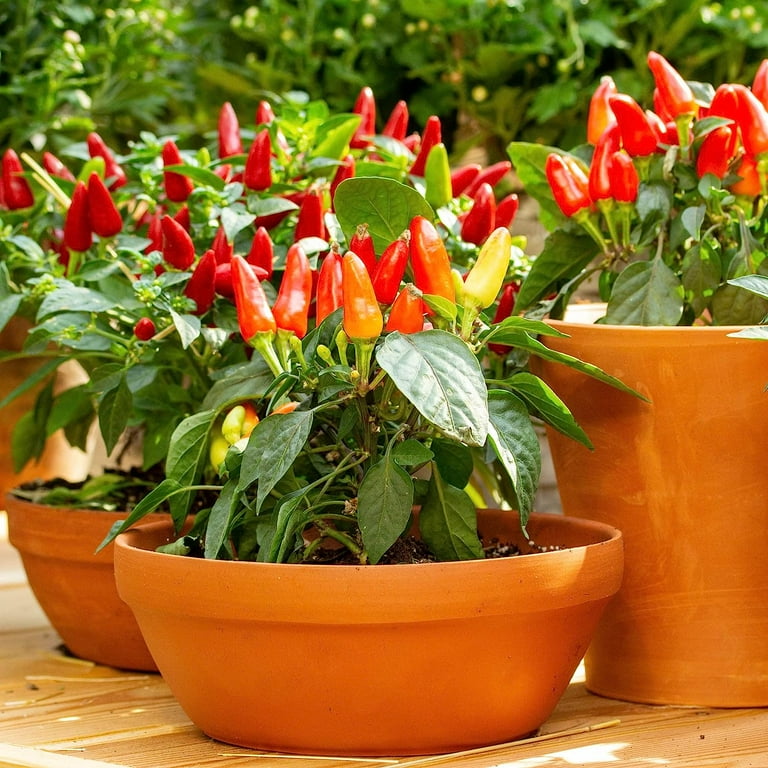Discover the Best Fertilizers for Peppers: Crucial Nutrients for Thriving Plants
How Fertilizers Play an Essential Function in Growing Healthy And Balanced and Bountiful Pepper Crops
Fertilizers offer as the foundation of successful pepper farming, using a calculated technique to nourishing the dirt and fostering optimum plant growth. The detailed dancing between essential nutrients and the pepper plants' physical processes emphasizes the critical role that plant foods play in making sure a bountiful harvest.
Relevance of Nutrient-Rich Fertilizers
The usage of nutrient-rich plant foods plays a critical function in boosting the performance and quality of pepper crops in contemporary farming practices. Nitrogen, phosphorus, and potassium are primary nutrients that are vital for the development and growth of pepper plants.
Inadequate degrees of these nutrients can cause stunted development, minimized yields, and vulnerability to illness (best fertilizers for peppers). Nutrient-rich fertilizers give a targeted solution to ensure that pepper plants receive the necessary elements for optimum development and efficiency. Furthermore, these fertilizers help boost dirt fertility with time, creating a lasting environment for lasting pepper farming
Enhancing Plant Development and Growth
To optimize plant growth and growth in pepper crops, calculated application of nutrient-rich plant foods is essential. Plant foods play a crucial duty in boosting the overall wellness and productivity of pepper plants by providing them with necessary nutrients that might be lacking in the soil. Phosphorus, potassium, and nitrogen are main macronutrients called for in huge amounts by peppers for robust development. Nitrogen help in leafy environment-friendly growth and total plant vitality, phosphorus sustains root advancement and flower development, while potassium contributes to condition resistance and fruit high quality.
Along with these macronutrients, micronutrients such as zinc, iron, and magnesium are additionally vital for the appropriate performance of various plant processes. Iron, for example, is necessary for chlorophyll production, which is crucial for photosynthesis and overall plant growth. Zinc plays a critical role in enzyme activity and hormonal agent synthesis, influencing plant growth and advancement at a mobile degree. Magnesium is important for the formation of chlorophyll and total energy transfer within the plant.

Boosting Disease Resistance With Plant Foods
By strategically including targeted fertilizers, farmers can boost the disease resistance of pepper plants, ensuring optimal plant health and wellness and performance. Fertilizers including crucial nutrients like potassium, phosphorus, and nitrogen play an important duty in reinforcing pepper plants' immune systems, making them a lot more resilient to numerous diseases. Nitrogen, for instance, help in the manufacturing of proteins that are important for plant defense reaction. Phosphorus contributes to root growth, enabling plants to better take in nutrients and water, therefore boosting their ability to fend off illness. Potassium controls processes that enhance general plant health and wellness, making peppers much more robust against virus.

Optimizing Pepper Yield Via Fertilizing
Utilizing a well balanced fertilizing approach is vital to accomplishing maximum pepper return and making sure optimal crop performance. By offering peppers with the right nutrients at the right time, farmers can dramatically improve their return capacity. Potassium, nitrogen, and phosphorus are vital components for pepper growth, with nitrogen aiding in fallen leave and stem growth, phosphorus supporting origin growth and blossom formation, and potassium advertising overall plant health and wellness.
To take full advantage of pepper return, it is important to perform soil examinations to determine existing nutrition degrees and identify any kind of deficiencies that need to be attended to. Based on these outcomes, farmers can develop a tailored fertilizing plan that satisfies the specific requirements of their pepper recommended you read plants. Additionally, appropriate fertilization methods such as split applications throughout the expanding season can ensure constant vitamins and mineral availability for the plants.

Lasting Plant Food Practices for Peppers
In thinking about sustainable plant food practices for peppers, it is important to concentrate on long-term soil health and environmental stewardship together with optimizing plant productivity. Sustainable fertilizer techniques aim to maintain or improve dirt fertility while decreasing damaging ecological influences. One crucial technique is using natural fertilizers such as compost, manure, or cover crops, which not just give vital nutrients to the peppers however likewise add to soil framework and microbial task. These natural alternatives assist build raw material in the dirt, boosting its capability to keep water and nutrients, thus supporting long-term plant health and wellness and durability.
In addition, precision agriculture strategies, such as soil screening and targeted nutrient applications, can assist optimize plant food use, ensuring that peppers obtain the nutrients they require without excess overflow right into waterways. This not only profits the environment by lowering contamination but additionally saves prices for farmers by reducing waste. By adopting lasting fertilizer techniques, pepper growers can guard the health and wellness of their plants, soil, and bordering communities for future generations.
Conclusion
To conclude, fertilizers are essential for growing bountiful and healthy pepper plants. best fertilizers for peppers. They offer necessary nutrients for plant growth and growth, boost condition resistance, and optimize yield. By carrying out lasting fertilizer techniques, farmers can ensure the long-lasting wellness of their pepper crops and add to an extra efficient and environmentally-friendly farming system
The elaborate dancing in between important nutrients and the pepper plants' physical procedures emphasizes the critical duty that plant foods play in ensuring a bountiful harvest.To enhance plant development and growth in pepper plants, strategic application of nutrient-rich fertilizers is necessary. Plant foods play an important function in improving the general wellness and performance of pepper plants by providing them with vital nutrients that might be check my site doing not have in the dirt.By purposefully including targeted fertilizers, farmers can reinforce the illness resistance of pepper plants, ensuring optimum plant wellness and efficiency. Plant foods consisting of crucial nutrients like phosphorus, potassium, and nitrogen play a critical duty in reinforcing pepper plants' immune systems, making them a lot more durable to various diseases.